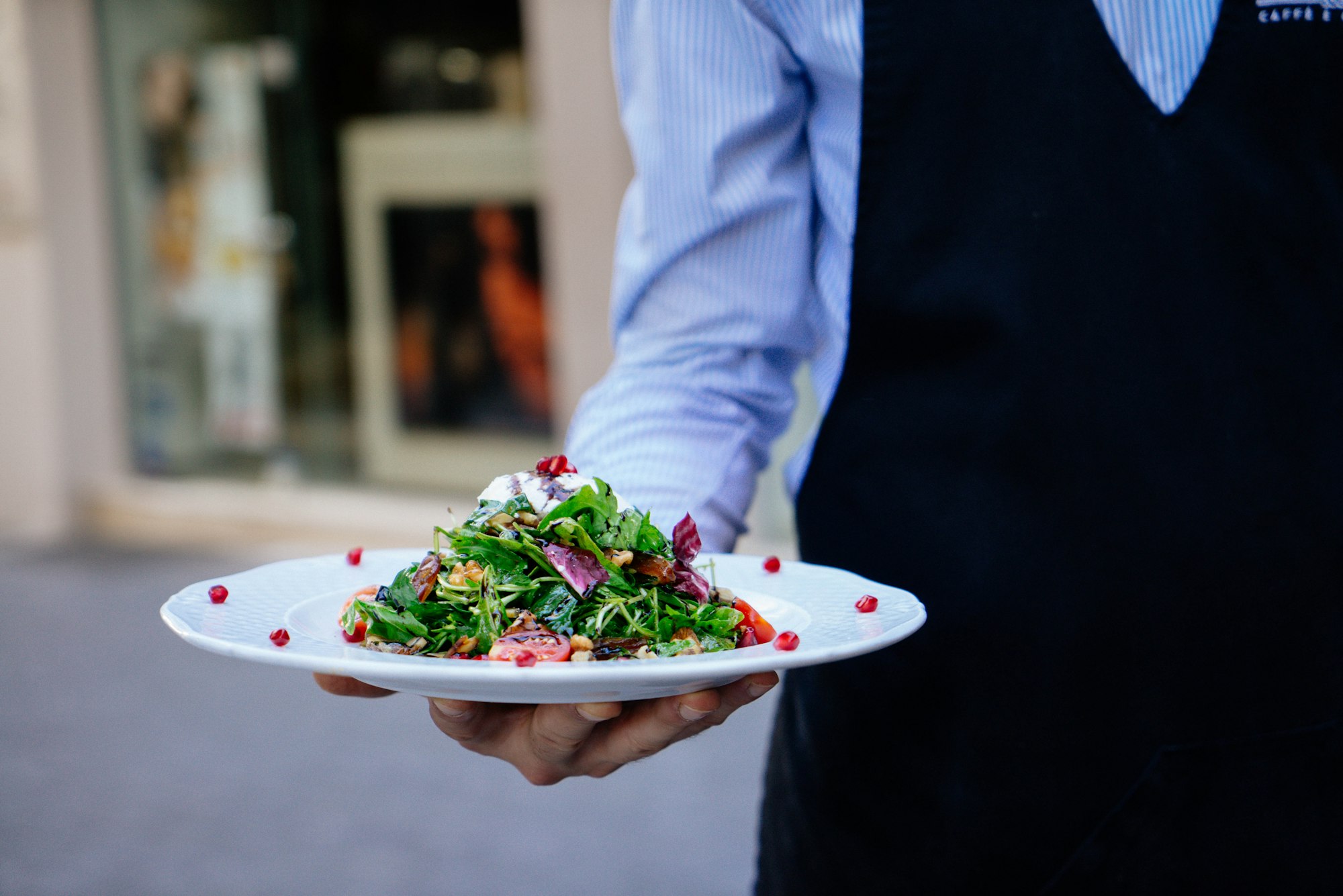The Ethics of Tipping

Having returned to the United States after spending my formative years in Europe, it was only natural that I would experience culture shock. Most of it was expected (switching back to imperial units, accidentally overpaying someone by a few hundred because $20 and $50 notes are exactly the same size), much larger food and drink portions (why is 1/2 lb burger standard? And why is a shot ~20cc/.67oz in Europe but ~44cc/1.48oz in the US?), and lastly, the one thing I dread the most: tipping.
What is the percentage of being tipped? I was told once that 15% was standard (if you’re cheap in California), but 25% if elsewhere in the country. I’ve also been told to tip what I think my server gets. And a server once specifically told me that I’m not obligated to tip.

Of course this raises many questions: was my server being honest about not having to tip? Further, does my tip really go to the server, to other staff, or does it go straight to management? If only to the server, why doesn’t the cook get a tip? He after all made the food that made my experience worthwhile. Also why do I have to tip anyway, and who decides who is worthy of being tipped? Do we tip merely out of custom (such as why waitstaff expect a tip but not a Starbucks barista) or is there a normative claim that tipping is always required for every service employee? Or is tipping, in fact, not required, but failure to do so will be met with horrendous service upon the next visit?
Analysing what is acceptable and not acceptable regarding tipping, there are two ethical strands of thought that stand out: utilitarianism and deontology. Utilitarianism focuses on the consequences of an action—does the end result maximise happiness (happiness=well-being=utility) while deontology focuses on the inherent and universal good/wrongness of an action itself (e.g. lying is wrong). A good contrast between utilitarianism and deontological ethics is Kant’s axe-murderer scenario. Is it ok to lie to an axe-wielding murderer about the whereabouts of his targeted victim? The utilitarian would say that lying is the right thing to do if it saves the victim. However since Kant universalises that lying is wrong (we have a duty to truth; lying doesn’t respect a person), it follows that lying in this instance is also wrong even if you prevent the murder.
Of course, most people will not confront an axe-wielding murderer. Most likely the scenario might be something like if your bro is cheating on his girl (and you know that he is cheating), and she suspects as much and asks you “Was he with you last night?” What are you supposed to do? Cover for him or tell her the truth? Anyway like all moral quandaries, having a blanket all rule doesn’t always work and things get murky fast.
Anyway! The claims I pick up in the tipping culture discussion are:
Utilitarian:
- Not tipping will result in bad service during your next visit.
- Tipping ensures your server can make ends-meet.
- It’s also not a good idea to piss off the people serving your food.
Deontological:
- Tipping is a duty. Waiting staff depend on tips for survival. Even if service is bad, a tip must still be left.
Let’s look at the utilitarian arguments.
- I’m going to be honest here. I don’t care if the waiter serving me likes me or not. I’ve survived bad European waiting service and can probably sit at my table for a good 20 minutes before realising that my waiter has yet to take my order. But this aside, tipping actually has little effect on service quality.
- Tipping unfortunately does not ensure your server can make ends-meet. Customers often pay less tips to staff of colour, women, and foreigners but more to white males. Tipping also ensures that 2/3 women in the industry experience sexual harassment.
- However, I am not sure I do want to piss off the serving staff if there is a real likelihood my order will contains some sort of human bodily product. Pissing off your server though is separate from tipping and this applies worldwide. However the cultural implication is that repeated failure to tip (or tip badly) in the US could result in such a consequence.

Let’s now look at the deontological argument. This argument on the whole seems MUCH better than a utilitarian one. Waitering staff DO depend upon their tips for survival (even if it does not necessarily mean they make ends-meet). However some feel that this argument only applies outside of California. Generally, US waitering staff are exempt from federal minimum wage (the law actually states workers who normally get at least $30 a month in tips are exempt…), but this does not apply in California where workers are entitled to a minimum wage of $12/hour ($15.59 in San Francisco). I’ve heard Californians argue that we shouldn’t tip because we pay waitering staff the minimum, therefore we don’t owe them any more tips than we would give to a Starbucks barista.
However others say that we don’t tip the barista because she’s not serving us whereas a server in a restaurant is. I think that this is misguided. This distinction does not explain why I am expected to tip a bartender even if I order my drink directly at the bar and walk back to my table. What this shows is that a duty to tip fails on a deontological ground because it isn’t universal across the service industry. Tipping can only be morally right if it is universalised. It means that not only does a bartender get a tip for every beer, but so does a barista for every coffee ordered. A duty of tipping must be applicable to all service staff (servers, bartenders, cooks, dishwashers, taxi drivers, grocery baggers, baristas… etc.). Unfortunately this leads down a rabbit hole. How do you decide who to tip and who not to tip? Do you tip your gardener, plumber, or expensive car mechanic?
Perhaps we need to look at this from a different angle. If we look back at the minimum wage, is an annual post-tax salary of $21,393 (~$27k SF) post-tax enough to survive in LA or SF? Obviously, it isn’t. This leads me to ask if we have a duty to make sure people are paid survivable wages? I think we do (and I’m equating survivable here with fair, thus a survivable wage=a fair wage), but such a wage should not come in the form of tips.

Rather we need to look at tips in themselves. According to the venerable Wikipedia, to tip is originally slang for “to give a small present of money” and later “to leave a gratuity.” For our purposes, we are interested in leaving gratuity, which is just a fancy way of saying “to leave a tip”. Gratuity “dates back either to the 1520s, from “graciousness”, from the French gratuité (14th century) or directly from Medieval Latin gratuitas, ‘free gift’, probably from earlier Latin gratuitus, ‘free, freely given’. The meaning ‘money given for favor or services’ is first attested in the 1530s.”
If tips are by definition supposed to be freely given (and hence why tips aren’t technically mandatory), then we should ascertain why employees we normally tip are tipped at all. Apparently US tipping culture is closely linked to the abolition of slavery and the hiring of black labour. Former slaves often ended up in menial positions, and their employers refused to pay them a wage under the condition that guests would offer a tip. This later evolved to subsidising all restaurant workers pay with tips.

A-ha! So instead of a restauranteur paying staff fair wages, we’re expected to do it for them! So when we order in a restaurant or bar, we’re not paying the actual market value for the services rendered. That is why we pay tips. Yet this does not seem like a strong enough reason to pay tips to only waitering staff. In a state like California, a barista gets paid a similar amount yet tipping is not the norm. Therefore our duty to make sure waitering staff (and by extension, everyone in society) are paid fairly should not come in the form of tips but by simply paying higher prices so that their employer can pay a fair wage. Any tips paid should simply be a perk and not part of the wage.
Unfortunately though, this is not the current system and probably won’t be, if ever. What is there to do? Firstly, the moral ambiguity of tipping is apparent by the lack of agreement in what percentage of tip is acceptable. I propose the standard should be the percentage that staff (all the staff, not just the servers) lose out on due to underpriced services. If we have a cultural expectation to tip and subsidise someone’s wage, then we ought to have a guide on our expected contribution. If the meal is selling 20% less than what it should be for, then one should pay 20% tip. This would not only take away the awkward (and for me, extremely dreadful) moment of deciding how much to tip, but also comes with the added caveat of removing the tipping bias against minorities and unattractive servers. Secondly, tipping must be universalised. If the point is to subsidise a workers wage to make it a fair wage, then we need to subsidise all service staff wages including the barista, and the grocery worker, et cetera. This is the only way to make tipping morally acceptable under the current system. However in itself, the American expectation of paying tips fails under both utilitarian and deontological arguments.
What are your thoughts on tipping? Let me know in the comments!
Comments ()